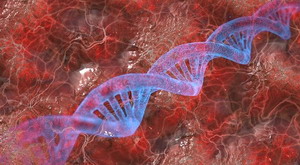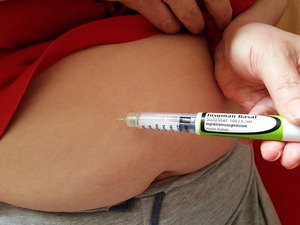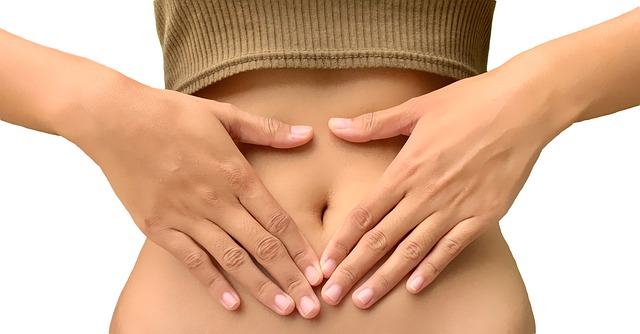 Last week my brother sent me a link to an interview with a researcher in Hungary looking into the root causes of blood sugar issues like metabolic syndrome and type 2 diabetes. The information was fascinating to me because it was all about hormones that were not even discovered until 1971, and never mentioned at all in any of my schooling. This is typical. New research discoveries generally take from 20 to 30 years before they get mentioned in any textbooks med students might read. It has now been 50 years, and no one is talking about these guys yet in the general conversation between doctors or the public. We have all heard of insulin, thyroid hormone, growth hormone, estrogen, and progesterone, but they have been known for at least 90 years.
Last week my brother sent me a link to an interview with a researcher in Hungary looking into the root causes of blood sugar issues like metabolic syndrome and type 2 diabetes. The information was fascinating to me because it was all about hormones that were not even discovered until 1971, and never mentioned at all in any of my schooling. This is typical. New research discoveries generally take from 20 to 30 years before they get mentioned in any textbooks med students might read. It has now been 50 years, and no one is talking about these guys yet in the general conversation between doctors or the public. We have all heard of insulin, thyroid hormone, growth hormone, estrogen, and progesterone, but they have been known for at least 90 years.
 One of the surprising things about these “new” hormones is that they are the most common hormones in our body. They are produced by specialized cells in our gut lining beginning just below the stomach and extending down and through the colon. About 1% of the cells in our gut are these special hormone-producing cells. The top third of the gut produces the hormone abbreviated GIP (Glucose-dependent insulinotropic peptide), and its main function is to trigger the release of insulin plus some glucagon. It responds to the absorption of sugars and fats that absorb quickly in the gut. The lower third of the gut and colon has hormone-producing cells that release a hormone called GLP-1 (Glucagon-Like Peptide – 1) whose primary job is to also trigger the release of insulin while suppressing the release of glucagon. Both of these hormones affect a whole host of other parts of the body, like bones and brain and heart, and so on.
One of the surprising things about these “new” hormones is that they are the most common hormones in our body. They are produced by specialized cells in our gut lining beginning just below the stomach and extending down and through the colon. About 1% of the cells in our gut are these special hormone-producing cells. The top third of the gut produces the hormone abbreviated GIP (Glucose-dependent insulinotropic peptide), and its main function is to trigger the release of insulin plus some glucagon. It responds to the absorption of sugars and fats that absorb quickly in the gut. The lower third of the gut and colon has hormone-producing cells that release a hormone called GLP-1 (Glucagon-Like Peptide – 1) whose primary job is to also trigger the release of insulin while suppressing the release of glucagon. Both of these hormones affect a whole host of other parts of the body, like bones and brain and heart, and so on.
 So why do we care? It all sounds like a lot of blah, blah, blah. Well, how these cells respond to your food determines if you get fat and if you develop type 2 diabetes. Ahhh, now we see why we care! Both of these cells increase insulin, and insulin tells your body to store energy for later as fat. On an evolutionary level, this was a very good thing. Those that developed this ability to store energy for later did not have to be constantly be foraging for food. More than that, if no food was available they could live off their stored fat for months. The average lean person has enough stored energy as fat to walk over a thousand miles without having to eat. Some of us could walk several times that length.
So why do we care? It all sounds like a lot of blah, blah, blah. Well, how these cells respond to your food determines if you get fat and if you develop type 2 diabetes. Ahhh, now we see why we care! Both of these cells increase insulin, and insulin tells your body to store energy for later as fat. On an evolutionary level, this was a very good thing. Those that developed this ability to store energy for later did not have to be constantly be foraging for food. More than that, if no food was available they could live off their stored fat for months. The average lean person has enough stored energy as fat to walk over a thousand miles without having to eat. Some of us could walk several times that length.
 The main interest we are concerned with today is the negative impact of too much release of the hormone at the top of the gut – GIP. Some really interesting things are behind this. I mentioned that this hormone is released primarily in response to sugars (carbs) and fats that are easily digested. This has to do with the structure of the food itself, and not how quickly the sugar or fat is absorbed. For example, you can eat an apple as a raw apple or you can eat it in the form of apple juice. Both forms will raise your blood sugar to the same amount at the same speed, yet the apple juice will trigger twice the amount of GIP and twice the amount of insulin. Both have given you the same amount of sugar into your bloodstream, but one of them is now floating around with twice the insulin trying to store it as fat. These high insulin loads overwhelm the body and eventually, it stops responding to the insulin. This is called insulin resistance, and this is what eventually causes type 2 diabetes. In fact, this insulin resistance is the underlying cause of most of the modern diseases we have to deal with. So you see, these little hormone cells in the upper intestines are very important… I mean like super important.
The main interest we are concerned with today is the negative impact of too much release of the hormone at the top of the gut – GIP. Some really interesting things are behind this. I mentioned that this hormone is released primarily in response to sugars (carbs) and fats that are easily digested. This has to do with the structure of the food itself, and not how quickly the sugar or fat is absorbed. For example, you can eat an apple as a raw apple or you can eat it in the form of apple juice. Both forms will raise your blood sugar to the same amount at the same speed, yet the apple juice will trigger twice the amount of GIP and twice the amount of insulin. Both have given you the same amount of sugar into your bloodstream, but one of them is now floating around with twice the insulin trying to store it as fat. These high insulin loads overwhelm the body and eventually, it stops responding to the insulin. This is called insulin resistance, and this is what eventually causes type 2 diabetes. In fact, this insulin resistance is the underlying cause of most of the modern diseases we have to deal with. So you see, these little hormone cells in the upper intestines are very important… I mean like super important.
 So why isn’t anybody talking about this? There is a ton of research being done on finding drugs that alter these hormones as new weight loss drugs and new diabetes drugs. Without this profit motivation, we probably would not have any research at all. But the reason no one in the food industry (and its government promotion arm the FDA) is paying attention to this is the ugly reason why these little cells are over-reacting. They overreact to food that has been processed, not to natural foods like you would find in nature. Guess where all the profit is in the food industry? It is in the selling of highly processed foods. Unless you are a whack job health nut like me who makes all your food from scratch, you will be eating a lot of processed food. Even I still get my share. Coconut oil and avocado oils are processed. These oils don’t just drip from trees somewhere. Stevia is processed. Fresh stevia leaves taste terrible. Fresh range-fed meats and fresh veggies are pretty okay. Living the keto lifestyle I stay pretty much away from any sort of processed carbs.
So why isn’t anybody talking about this? There is a ton of research being done on finding drugs that alter these hormones as new weight loss drugs and new diabetes drugs. Without this profit motivation, we probably would not have any research at all. But the reason no one in the food industry (and its government promotion arm the FDA) is paying attention to this is the ugly reason why these little cells are over-reacting. They overreact to food that has been processed, not to natural foods like you would find in nature. Guess where all the profit is in the food industry? It is in the selling of highly processed foods. Unless you are a whack job health nut like me who makes all your food from scratch, you will be eating a lot of processed food. Even I still get my share. Coconut oil and avocado oils are processed. These oils don’t just drip from trees somewhere. Stevia is processed. Fresh stevia leaves taste terrible. Fresh range-fed meats and fresh veggies are pretty okay. Living the keto lifestyle I stay pretty much away from any sort of processed carbs.
 Let’s use wheat as another example of what I am talking about. When researchers compared the effects of wheat flour bread to wholemeal pasta, they found the same type of results as they did with apples. Turning wheat into flour and baking it into bread doubled the insulin impact in the patients compared to wholemeal pasta. As the particle size of the food gets smaller during processing, the more the cells react and release GIP, which in turn triggers more insulin release. In school, we were taught that the body releases insulin in response to blood sugar levels. Well, it turns out that this is mostly not true. There is a small insulin response to blood sugar, but the response to the GIP hormone is three times as strong as the blood sugar alone.
Let’s use wheat as another example of what I am talking about. When researchers compared the effects of wheat flour bread to wholemeal pasta, they found the same type of results as they did with apples. Turning wheat into flour and baking it into bread doubled the insulin impact in the patients compared to wholemeal pasta. As the particle size of the food gets smaller during processing, the more the cells react and release GIP, which in turn triggers more insulin release. In school, we were taught that the body releases insulin in response to blood sugar levels. Well, it turns out that this is mostly not true. There is a small insulin response to blood sugar, but the response to the GIP hormone is three times as strong as the blood sugar alone.
 So, what is this telling us? It is saying “DON’T EAT PROCESSED FOOD. PERIOD.” Eating processed food is what has pushed 88% of Americans into metabolic syndrome – a condition that did not even exist 150 years ago except possibly among a few wealthy folks that had available white flour and sugar products in large amounts. Special bonus – these cells respond twice as vigorously to the combination of refined carbs with refined fats. In nature, you almost never find foods that are high in both fat and carb or sugar. Your body does not like both of these together! Another example of this is if you eat a raw potato you get a very small GIP and insulin response. If you bake the potato and mash it, you have now processed it and your body reacts with a high insulin response. If you put a lump of butter on these mashed potatoes, you now get a super high response. Do you want to make this even worse? Process these potatoes into fast-food French fries and fry them in processed oils – death in a basket! Apply this same understanding to virtually every popular snack chip made. Do you see the impact this knowledge would have on the food industry?
So, what is this telling us? It is saying “DON’T EAT PROCESSED FOOD. PERIOD.” Eating processed food is what has pushed 88% of Americans into metabolic syndrome – a condition that did not even exist 150 years ago except possibly among a few wealthy folks that had available white flour and sugar products in large amounts. Special bonus – these cells respond twice as vigorously to the combination of refined carbs with refined fats. In nature, you almost never find foods that are high in both fat and carb or sugar. Your body does not like both of these together! Another example of this is if you eat a raw potato you get a very small GIP and insulin response. If you bake the potato and mash it, you have now processed it and your body reacts with a high insulin response. If you put a lump of butter on these mashed potatoes, you now get a super high response. Do you want to make this even worse? Process these potatoes into fast-food French fries and fry them in processed oils – death in a basket! Apply this same understanding to virtually every popular snack chip made. Do you see the impact this knowledge would have on the food industry?
 But what if you are not a super health nut, what can you do? Research has come up with some helpful tips. When you eat a mixed meal, one with veggies, starchy food, meat, and maybe a dessert, the order in which you eat this food matters. Eat the veggies first, the meat second, the starch third, and always have the dessert last. This lowers the insulin response the most. The second tip is to eat fewer larger meals – don’t graze or snack. The ideal would be to eat one meal a day, but two or even three without any snacking between meals is helpful. In terms of your circadian rhythm, your biggest meal is best within a few hours of getting up. That is when your body has the most digestive energy for handling the food. It should be obvious that sugary drinks are completely off the table. It does not matter if we are talking about soda pop or orange juice; sugar is sugar. Cook your foods as little as possible. If your food comes from a package that has a list of ingredients, then it is not real food. I low temperature cook my meats in the sous vide manner in a water bath. Veggies I lightly steam or pan-fry wok style with avocado oil (since it is stable at higher temperatures.)
But what if you are not a super health nut, what can you do? Research has come up with some helpful tips. When you eat a mixed meal, one with veggies, starchy food, meat, and maybe a dessert, the order in which you eat this food matters. Eat the veggies first, the meat second, the starch third, and always have the dessert last. This lowers the insulin response the most. The second tip is to eat fewer larger meals – don’t graze or snack. The ideal would be to eat one meal a day, but two or even three without any snacking between meals is helpful. In terms of your circadian rhythm, your biggest meal is best within a few hours of getting up. That is when your body has the most digestive energy for handling the food. It should be obvious that sugary drinks are completely off the table. It does not matter if we are talking about soda pop or orange juice; sugar is sugar. Cook your foods as little as possible. If your food comes from a package that has a list of ingredients, then it is not real food. I low temperature cook my meats in the sous vide manner in a water bath. Veggies I lightly steam or pan-fry wok style with avocado oil (since it is stable at higher temperatures.)
 This introduction to the hormone system in your gut is just the tip of the iceberg. So far I have found out about 14 different hormones in the gut. The GIP story so far appears to be the biggest story for affecting so much of our health. I am sure there are lots more stories for me to learn. I am having to unlearn a lot of what I learned in school. Things just don’t work the way they told us. No wonder we have been having so much trouble overcoming our modern health crises.
This introduction to the hormone system in your gut is just the tip of the iceberg. So far I have found out about 14 different hormones in the gut. The GIP story so far appears to be the biggest story for affecting so much of our health. I am sure there are lots more stories for me to learn. I am having to unlearn a lot of what I learned in school. Things just don’t work the way they told us. No wonder we have been having so much trouble overcoming our modern health crises.
Take care,
David
